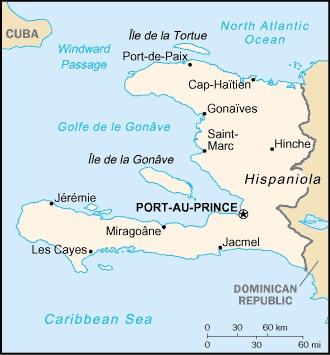Brazilian Defense Minister Celso Amorim told the BBC his country plans to begin removing its troops from Haiti, after it was determined the occupation doesn’t help Haitians. The troops were sent in 2004 as part of a UN mission to impose order after former president Jean-Bertrand Aristide was deposed in a coup. Around 12,000 UN-flagged soldiers are in Haiti, 1266 of which are Brazilian.
 “[I]n the medium and long term, it’s not good for Haiti or for those who are there to have the troops stay forever,” Amorim said.
“[I]n the medium and long term, it’s not good for Haiti or for those who are there to have the troops stay forever,” Amorim said.
The UN troops were also used to enforce order after a January 2010 earthquake killed as many as 300,000 people in the Americas’ poorest nation.
The Center for Economic Policy Research says the UN mission has “developed a reputation for brutality and human right violations. These include a raid on one of Haiti’s largest poor neighborhoods in July 2005 that left dozens of civilians killed or wounded.” CEPR’s Marc Weisbrot recommends a withdrawal of Brazilian troops, which he says act to enforce American policy prerogatives on the island, including preventing any truly popular government arising in a free vote. In the last elections, the main political party was disqualified.
Amorim’s statement comes in the wake of a scandal involving Uruguayan “peacekeepers,” caught on video gang-raping an 18-year-old Haitian man. In October 2010, some five thousand people died in a cholera outbreak traced back to Nepalese UN troops.
Haiti has been occupied and beseiged by foreign troops throughout its history. France meddled constantly in the country years after it was originally thrown out in the 1797 slave revolt. Thomas Jefferson slapped some of the United States’ first sanctions ever on Haiti after independence hero Toussaint L’Ouverture took power, successfully crushing the Haitian economy to maintain white hegemony. The US also occupied the country from 1915-1934 to protect corporate interests from revolutionary actors. It again intervened in 1994-95 to install Aristide from exile in Miami.


